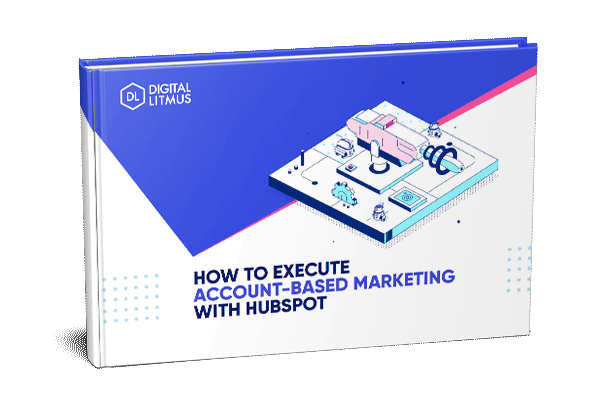"We spent a few hundred pounds, stuck up a few ads on Facebook but no one signed up".
"I've never been able to get anything out of LinkedIn advertising".
If any of these statements resonate with you, fear not! I've heard them directly from the mouths of many CEOs and founders of businesses that I've met with over the past few months.
When I've spent time with these business owners and dug a little deeper with each one into what they've been doing on the marketing front, I discovered some of the real reasons as to why their marketing efforts haven't really worked out.
Here are a few examples of those findings:
- All the Adwords traffic was being sent to a generic page on their website which had a poor conversion rate. They should have been using tailored landing pages that communicated exactly what the value proposition of the product was and how it directly solved the customers' problem.
- The client spent just £200 on Facebook ads which generated only 100 visitors to the campaign landing page. It was impossible to statistically prove whether it was working or not with such a low volume of traffic.
- Just one piece of generic content was promoted in LinkedIn to a broad audience for a number of months. There was no mechanic whatsoever to capture leads from the content page, just a telephone number and a link to the main website.
Instead of analysing in depth why their tactics weren't really getting the right results, fixing the problems and having another run at it, in many cases the temptation to just write-off the entire marketing channel altogether was simply too high.
More often than not, the business owners reverted to a marketing activity they knew had converted in the past and pulled back from trying anything new for the foreseeable future.
As a consequence, none of them could truly say that they had fully explored the potential of the marketing channel that they'd initially tried. When you consider that Facebook has an audience of 2 billion people, that there are 3.5 billion daily searches on Google, and LinkedIn has a global business audience of 500 million, that's quite a lot of opportunity missed!
The problem here is two-fold. Firstly, it's a natural human instinct to be lead by your gut feeling and if something hasn't worked from the outset it's easy to just conclude that it won't ever work for you. This feeling is even stronger if you've spent a lot of money in the process and seen no results. What seems to be easily forgotten is that it was your gut instinct that was driving your desire to try a new marketing channel in the first place - there was most probably good reason for that.
Secondly, the majority of businesses don't typically think of doing marketing activity in the form of small experiments. As a result, many of the activities they do are undertaken in more of an 'all-or-nothing' approach. In practice, that is the quickest way to throw money at a burning fire.
Don't settle for a cookie-cutter approach to B2B marketing. Let's develop a data-driven strategy that differentiates your brand and delivers results. Ready to embark on a journey towards business growth and success? Start by exploring our strategy services and how they can help you thrive.
Understanding Marketing Experimentation
In the world of growth marketing, experimentation is about rapid learning. It's about ruling things in or out quickly and making decisions based on statistically significant data.
More importantly, it's about doing it in the most cost-effective fashion. It's not about using a media budget of £20,000 in one full-swoop, crossing your fingers and hoping it all works out. Marketing experiments involve smaller ring-fenced budgets, ring-fenced time windows and clear objectives / goals.
Furthermore, experiments should be part of a process. To be able to effectively experiment, you need to know what and why you're testing something, how to test it in the most scientific way possible, and what happens next depending on what the data is telling you. Having a process for experimentation enables you to keep iterating and adjusting variables quickly in a reliable way that'll guide you towards the answer you're seeking.
If you're able to navigate these variables effectively and prove that an experiment is working, all that's left to do is to double-down on it to drive further growth and move onto the next one.
That's how to build a scalable, predictable growth engine.
Designing An Effective Marketing Experiment
Here are six keys things to consider when you're designing a marketing channel experiment:
1. Objective - what is the overall goal that you're trying to achieve with your experiment? e.g. increase your newsletter signups, acquire new leads, drive app downloads, or increased the volume of sales
2. Hypothesis - every channel experiment needs a high level hypothesis that explains what you're testing as well as the key metrics that are required for the experiment to work.
For example:
We can generate 1,500 website visitors from the Facebook Channel using a budget of £1,000 at a target Cost-Per-Click of £1.50.
5% of these website visitors will convert to leads.
3. Customer - who is the target customer? This is often one of the hardest questions for most businesses to answer accurately but it's absolutely key to the success of your marketing!
Ask yourself whether you have you broken out your customer into different, smaller segments so you can create individual campaigns targeting each one.
For example, if you sell your product to small businesses, what type of small business owner do you want to target? Restaurant owners, shop owners, coffee shop owners etc etc. Each type of customer will have different customer needs and will need to be treated uniquely in the way you communicate to them.
By going granular on your customer, you'll be able to be more accurate when setting the targeting criteria in the marketing channel you want to use.
Channels like Facebook and LinkedIn have a wealth of customer targeting tools that will help you pinpoint your target customer and serve up an advert that really talks to them directly.
4. Creative / Messaging - If you are getting to know your target customer inside and out, then you'll begin to understand the things that will trigger their interest in your product or service.
Developing an engaging, creative message that really speaks to the needs of your customers and the specific problem you're solving for them will dramatically improve the click through rates of your creative, driving up the volume of traffic you need for your experiments.
5. Path To Conversion - First and foremost, knowing what your conversion rate is and what it needs to be for your experiment to work is a must. Then it's all about making sure all the right mechanics are in place to get your target customer over the line.
You may be brilliant at getting the right customer to visit your website or your app, but if they aren't taking the required action once they get there then you'll be wasting money right from the off.
Ensuring that the right customer journey is in place once the customer hits your website or app is key. As your experiment evolves, identifying and fixing bottlenecks in the conversion funnel will drive your results even further.
6. Tracking and Measurement - there's absolutely no point whatsoever in running any marketing activity if you don't have the right tools and tracking in place to understand what's working and what's not.
Before you start, you need to make sure your conversion funnel is tracked end-to-end using a tool like Google Analytics or MixPanel. It's critical to see where people are dropping out of your conversion funnel and understand why.
Also ensure that your website or app has the correct tracking and re-marketing pixels in from whatever marketing channel you are testing. Re-marketing is purely about keeping your customer in your funnel for as long as possible until they convert so don't waste that opportunity by leaving out the necessary pixels.
Finally, know how to interpret the data that you are getting in the right way. Wait for the data to be statistically significant before you make big decisions on your next move. Your first 100 customers may not convert, but your next 25 may do, so be patient and wait until there's enough data in the pot to get a real picture of what's going on.
Conclusion
The point of running well-crafted, ring-fenced marketing experiments is that they are designed to mitigate risk and not just throw money at the problem.
Starting with a single marketing channel that you know your customer is easily accessible is a good idea. Think about all the attributes that need to addressed in your experiment design and make sure that you don't cut too many corners otherwise you'll be setting yourself up for failure before you begin.
Finally, don't be afraid to experiment with a marketing channel that hasn't worked for you in the past. You most probably didn't test it comprehensively enough or with enough scientific rigour. there's always room for improvement.
So if you want to build a scalable growth engine for your business, it's time to start experimenting!

Could we be your next strategic marketing partner?
Our marketing strategy services - We are a B2B marketing agency with a dedicated team of experienced 'CMO-level' strategy experts specialising in strategic roadmaps, persona development and customer journey mapping, along with content and SEO strategy. Find out more about our marketing strategy services.
Enjoy this article? We produce blogs like this for our clients as part of our content marketing agency services, and could produce engaging content for you too.






